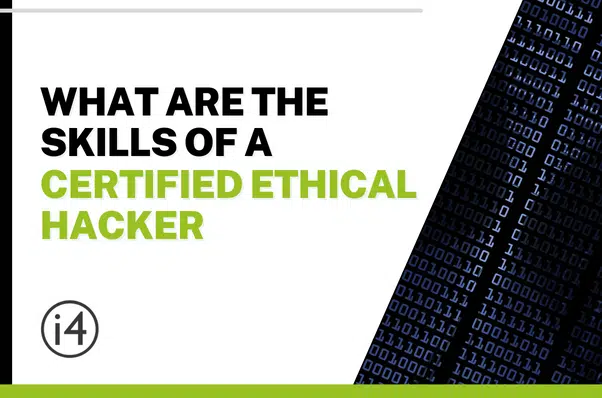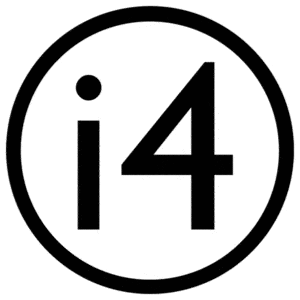The cybersecurity industry has never needed more ethical hackers. Certified ethical hackers are security professionals who understand and know how to look for weaknesses or vulnerabilities in target systems. They use the same knowledge and tools as a malicious hacker, but lawfully and legitimately in an effort to assess the cyber security posture of the target system.
To become a certified ethical hacker, individuals must first possess the necessary technical skills to carry out the job, which we will discuss below. But, it’s not just about those hard skills, certified ethical hackers must also have strong, soft skills such as critical thinking, problem-solving, and communication abilities.
Let’s explore five of the most important hard skills and five of the most important soft skills for this information security role.
Hard skills for ethical hackers
Hard skills are defined as specific, teachable abilities that can be quantified and measured. Here are the top five most important hard skills required to be a successful ethical hacker.
Software programming
It is true that for some very basic hacking operations, you don’t need to know any programming languages. For example, hacking into social media accounts or stealing passwords may not require any programming skills.
However, ethical hackers do a lot more than just that. Because of the scope and significance of their tasks, ethical hackers cannot get away from coding. Knowing different programming languages is essential for creating your own hacking tools, understanding how a computer system works, and automating processes.
The most popular programming languages for ethical hacking are:
- Python
- SQL
- Java
- C/C++
- PHP and more
You may not need to be proficient in all of these. But specializing in a couple and knowing your way around the rest will give you a significant advantage in the job market.
Networking and protocols
An ethical hacker needs to know everything about how networks work in order to be able to exploit them. This includes an in-depth understanding of computer network protocols such as TCP/IP, UDP, HTTP, SMTP.
And it’s not only protocols – as an ethical hacker, you need to know about various network infrastructure types, topologies, devices, and services as well.
You should also be familiar with different types of attacks that can be carried out on a network, such as DDoS attacks, man-in-the-middle attacks, SYN floods, and so on.
All of this will contribute to your ability to find vulnerabilities and carry out a successful network attack.
Linux
Linux is an operating system that is widely used in the world of ethical hacking for several reasons.
Firstly, it is open-source software, which means that anyone can access and modify its source code for their own purposes. This is important for ethical hackers because it allows them to tailor the operating system to their own needs.
Secondly, Linux is very stable and secure, which makes it a good choice for carrying out hacking operations. Its command-line interface (CLI) is also very powerful and can be used to perform a wide range of tasks.
Last but not least, Linux is compatible with a variety of tools that can be used for hacking purposes.
Therefore, knowing your way around Linux is essential for becoming a certified ethical hacker.
Databases
Ethical hackers need to know how to work with MySQL, MongoDB, PostgreSQL, etc. This is because they often need to deal with sensitive data such as customer information, financial records, and so on. Attempting to extract this data without the proper skills can be very difficult and time-consuming.
By learning how to work with databases, ethical hackers can easily access the information they need without raising any red flags.
Cryptography
Cryptography is the practice of secure communication in the presence of third parties. It is used extensively in ethical hacking, especially when protecting data and carrying out covert operations.
As an ethical hacker, you should be familiar with various cryptography concepts such as symmetric-key cryptography, public-key cryptography, digital signatures, and so on. You should also know how to use different tools for encrypting and decrypting data.
Soft skills for ethical hackers
In addition to the most important hard skills we mentioned, ethical hackers also need a set of soft skills in order to be successful. A soft skill is a non-technical ability that is related to your personality and behavior.
Here are the five most important soft skills for ethical hackers.
Problem solving and critical thinking
At the very top of our list are problem solving and critical thinking.
Problem solving is important because it allows you to find creative solutions to complex problems. This is often necessary when doing offensive security tasks (such as ethical hacking), as you will need to find ways around obstacles and security measures.
On the other hand, critical thinking is important for analyzing information and making decisions. This is a key skill for ethical hackers as they need to be able to assess risks and make decisions quickly.
Creativity
Another important soft skill for ethical hackers is creativity. Hacking often requires you to think outside the box and develop new and innovative solutions.
If you’re not creative, you may find yourself stuck at certain points in your career. Therefore, it’s important to learn how to be creative and think creatively.
Analytical skills
Ethical hackers need to be able to analyze systems in order to find vulnerabilities. This requires strong analytical skills and the ability to pay attention to detail.
As an ethical hacker, you need to be able to break down a system into its individual parts and understand how each one works. You also need to identify patterns and relationships between different elements.
Communication skills
Communication skills are important for ethical hackers for two reasons. First, they need to communicate their findings to others clearly and concisely. Second, they often need to collaborate with other ethical hackers to carry out successful attacks.
This means that they need to communicate effectively with their teammates to coordinate their efforts.
Organizational skills
Finally, ethical hackers need to be well-organized to be successful. This is because hacking operations can often be complex and require a lot of planning.
As an ethical hacker, you need to keep track of your progress and ensure that everything is going according to plan. You also need to work efficiently and stay organized even under pressure.
How to acquire ethical hacking skills
It’s one thing to know what skills are required to become an ethical hacker. But it’s another thing entirely to acquire these skills.
So, how can you obtain the skills of an ethical hacker?
By far, the easiest way would be to get yourself certified. To pass the certification exam, you need to go through training that would teach you all the skills that you need to know (at least the hard skills required).
There are many different ethical hacking certifications available, but the most popular one is the Certified Ethical Hacker (CEH) certification.
This cert is offered by the International Council of Electronic Commerce Consultants (EC-Council). The EC-Council is a globally recognized organization that specializes in cybersecurity education and training.
The CEH certification is one of the most comprehensive ethical hacking certifications available. It covers a wide range of topics, including network security, web application security, database security, and more.
If you’re serious about becoming an ethical hacker and attending CEH training, we recommend getting yourself certified.
Alternatively, you could also learn on your own by reading books or articles, taking an online ethical hacking course that doesn’t necessarily lead to a certification, or attending conferences and workshops.
Of course, the best way to learn would be to combine all of these methods, get yourself certified, and learn independently.
Remember, just like with any other information technology profession, the role of an ethical hacker requires continuous learning as the technologies and cyber threats looming over us are constantly changing. Even when you get certified, you will need to keep your skills up-to-date and renew the cert by learning new things and keeping abreast of the latest trends.
So, if you’re willing to put in the work, then there’s no reason why you can’t become a skilled and successful ethical hacker.
Conclusion
Becoming a certified ethical hacker requires a certain set of both hard and soft skills.
The hard skills required include software programming, Linux knowledge and experience, database management, and more.
The soft skills required include communication skills, organizational skills, and the ability to work efficiently under pressure.
The best way to acquire the skills of an ethical hacker would be to get yourself certified. Certification training will teach you everything you need to know in order to be successful in this field.
Of course, you can also learn on your own by reading books or articles, taking online courses, or attending conferences and workshops. However, the best way to learn would be to combine these methods.
If you’re interested in passing the CEH exam and sharpening your ethical hacker skills, feel free to reach out to us at The i4 Group. We would be happy to help you get started on your journey to becoming a certified ethical hacker.

